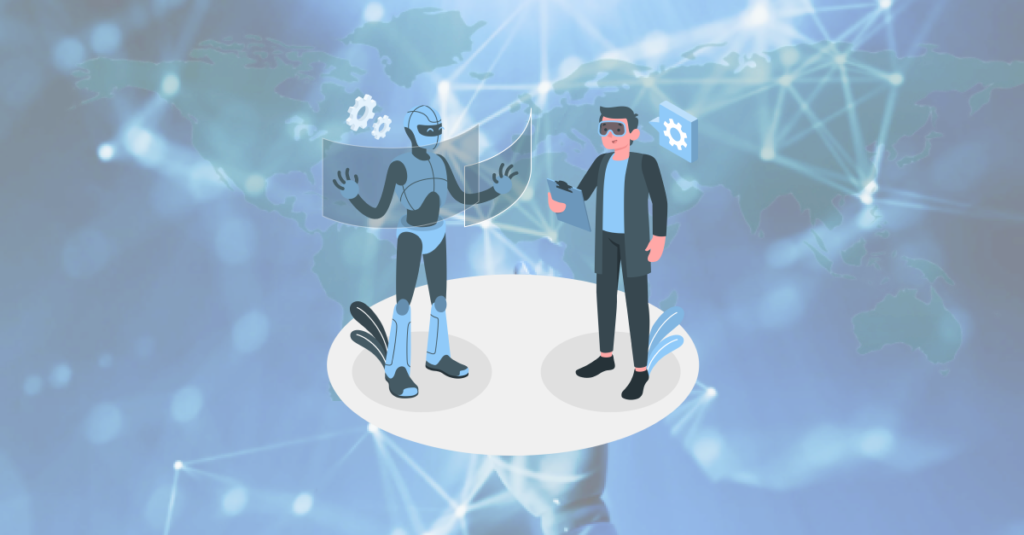
The rapid advancement of Artificial Intelligence (AI) is reshaping industries, economies, and the global workforce. This blog aims to comprehensively dissect AI’s multifaceted impact on employment, examining its potential to automate tasks, create new job roles, and emphasizing the imperative need for skill evolution and adaptation.
AI, encompassing machine learning, natural language processing, and robotics, has transitioned from theoretical concepts to practical applications. Its evolution has propelled innovation across diverse sectors such as healthcare, finance, logistics, and entertainment, revolutionizing operational efficiency and productivity.
Automation and Job Displacement
The advent of AI-driven automation poses a challenge to jobs reliant on repetitive tasks. Industries like manufacturing, customer service, data entry, and transportation face the prospect of certain roles being replaced or transformed by AI-powered systems, potentially leading to significant job displacement.
Creation of New Job Roles
Conversely, the AI revolution fosters the creation of novel job opportunities. Emerging roles such as AI ethicists, data scientists, machine learning engineers, AI trainers, and specialists in algorithmic design are in high demand. These roles necessitate a fusion of technical proficiency and human-centered skills.
Skill Evolution and Reskilling Imperatives
As AI alters the landscape of employment, there’s a critical need to cultivate uniquely human skills. Attributes like critical thinking, problem-solving, emotional intelligence, creativity, and adaptability are increasingly sought after. Encouraging continuous learning, reskilling initiatives, and fostering a culture of lifelong education are essential to prepare the workforce for the AI-driven economy.
The synergy between humans and AI represents a paradigm shift in the workforce. Collaborative intelligence entails leveraging AI’s capabilities to enhance human potential, innovation, and productivity. This collaborative model emphasizes augmentation rather than replacement, creating a more efficient and innovative workforce.
Educational Reform and Training Initiatives
Educational institutions and corporations must revamp their curricula and training programs. Integrating AI-focused courses, upskilling initiatives, and promoting continuous education will equip individuals with the necessary competencies to thrive in a technology-centric job market.
Ethical Frameworks and Regulatory Guidelines
AI’s proliferation raises ethical concerns, including data privacy, algorithmic biases, and socio-economic implications. Establishing robust ethical frameworks and regulatory standards is imperative to govern AI development and deployment, ensuring responsible and equitable utilization of AI technologies.
AI’s influence on employment presents a transformative landscape brimming with opportunities and challenges. Adapting to this evolving terrain requires a proactive approach towards acquiring new skills, fostering innovation, and addressing ethical considerations. The collaborative integration of humans and AI heralds a future where technology amplifies human potential, leading to a more adaptive, diverse, and resilient workforce.
Navigating the dynamic interplay between AI and employment necessitates a holistic approach encompassing education, skill development, ethical governance, and a collective commitment to shaping a future where AI augments human capabilities, fostering a prosperous and inclusive society.